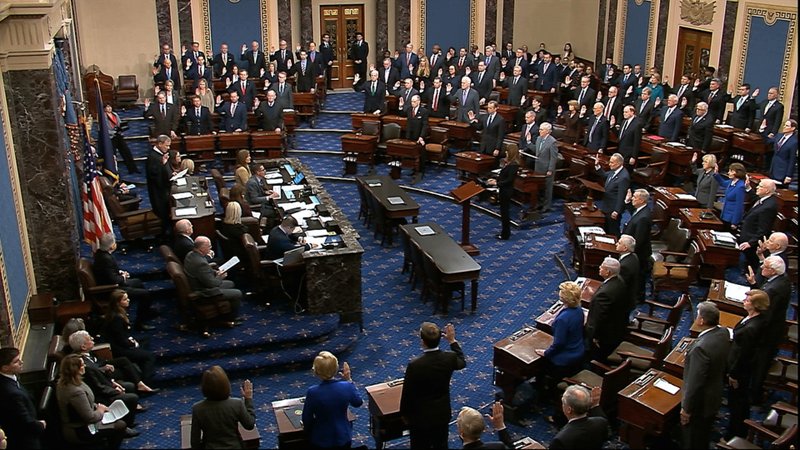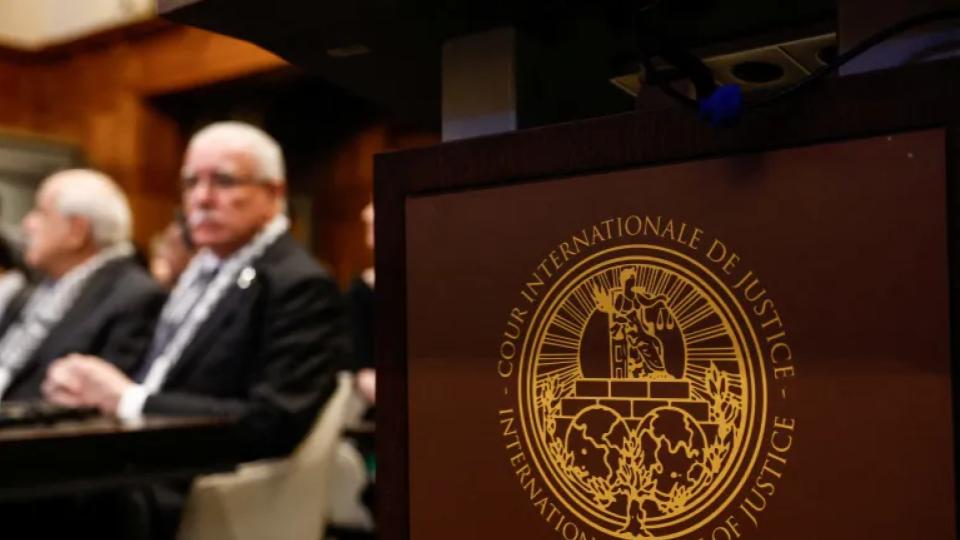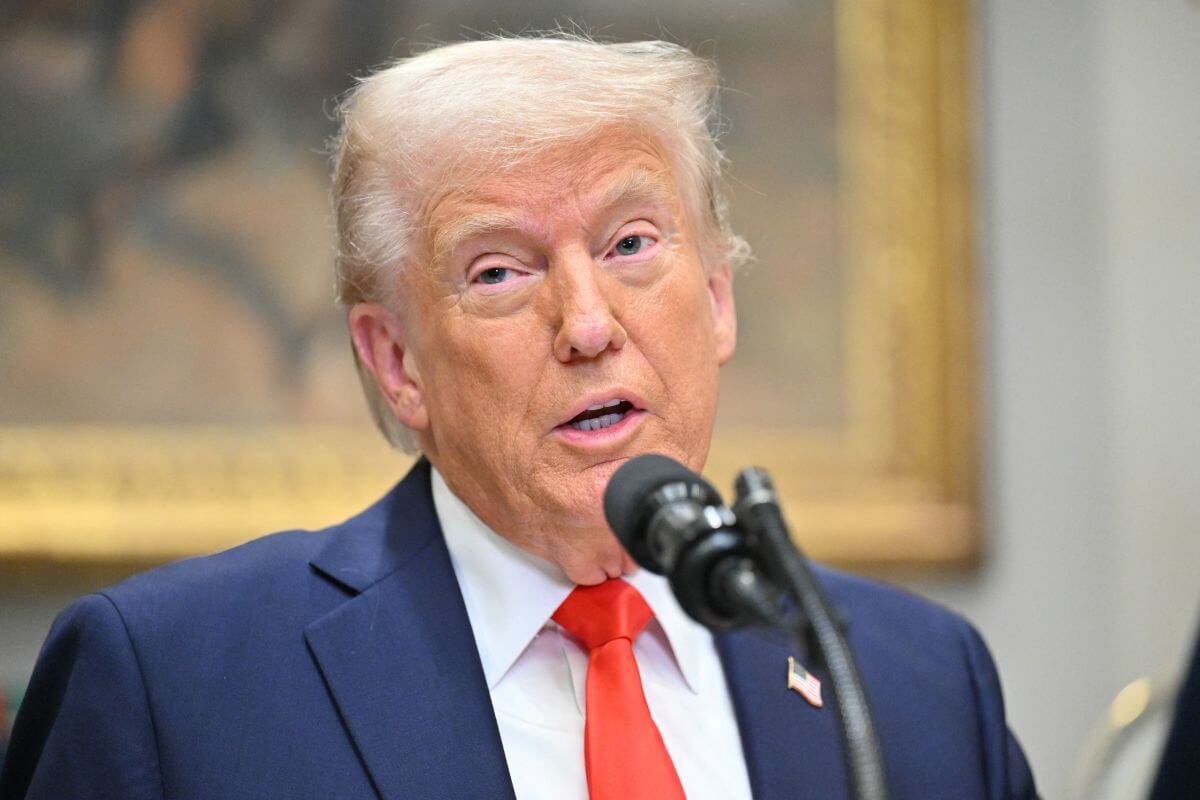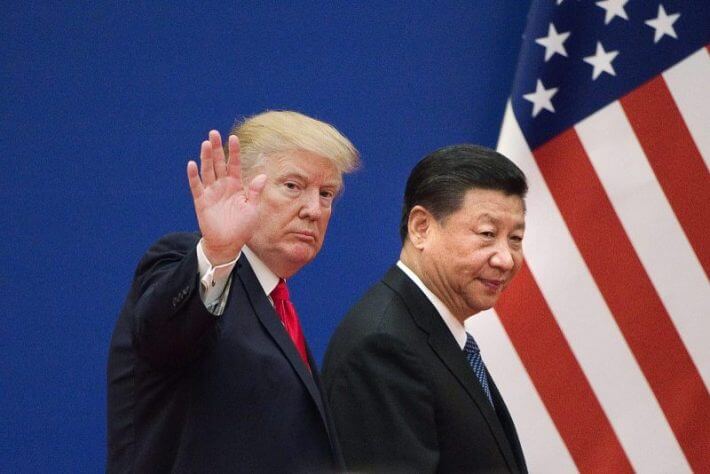Trump impeachment goes to Senate
Tue 26 Jan 2021, 12:10:28

Washington: House Democrats delivered the impeachment case against Donald Trump to the Senate late Monday for the start of his historic trial, but Republican senators were easing off their criticism of the former president and shunning calls to convict him over the deadly siege at the US Capitol.
It's an early sign of Trump's enduring sway over the party.
The nine House prosecutors carried the sole impeachment charge of incitement of insurrection" across the Capitol, making a solemn and ceremonial march to the Senate along the same halls the rioters ransacked just weeks ago.
But Republican denunciations of Trump have cooled since the January 6 riot. Instead Republicans are presenting a tangle of legal arguments against the legitimacy of the trial and questioning whether Trump's repeated demands to overturn Joe Biden's election really amounted to incitement.
What seemed for some Democrats like an open-and-shut case that played out for the world on live television, as Trump encouraged a rally mob to fight like hell" for his presidency, is running into a Republican Party that feels very differently. Not only are there legal concerns, but senators are wary of crossing the former president and his legions of followers who are their voters. Security remains tight at the Capitol.
Sen. John Cornyn asked if Congress starts holding impeachment trials of former officials, what's next: Could we go back and try President Obama?
Besides, he suggested, Trump has already been held to account. One way in our system you get punished is losing an election.
Arguments in the Senate trial will begin the week of February 8, and the case against Trump, the first former president to face impeachment trial, will test a political party still sorting itself out for the post-Trump era. Republican senators are balancing the demands of deep-pocketed donors who are distancing themselves from Trump and voters who demand loyalty to him.
One Republican, Sen. Rob Portman of Ohio, announced Monday he would not seek reelection in 2022, citing the polarised political atmosphere.
For Democrats the tone, tenor and length of the upcoming trial, so early in Biden's presidency, poses its own challenge, forcing them to strike a balance between their vow to hold Trump accountable and their eagerness to deliver on the new administration's priorities following their sweep of control of the House, Senate and White House.
Biden himself told CNN late Monday that the impeachment trial has to happen. While acknowledging the effect it could have on his agenda, he said there would be a worse effect if it didn't happen.
Biden said he didn't think enough Republican senators would vote for impeachment to convict, though he also said the
outcome might well have been different if Trump had six months left in his term.
outcome might well have been different if Trump had six months left in his term.
In a Monday evening scene reminiscent of just a year ago Trump is now the first president twice impeached the lead prosecutor from the House, this time Rep. Jamie Raskin of Maryland, stood before the Senate to read the House resolution charging high crimes and misdemeanors.
Earlier, Senate Majority Leader Chuck Schumer said failing to conduct the trial would amount to a get-out-jail-free card for others accused of wrongdoing on their way out the door.
Republicans appear more eager to argue over trial process than the substance of the case, he said, perhaps to avoid casting judgment on Trump's role in fomenting the despicable attack on the Capitol.
Schumer said there's only one question "senators of both parties will have to answer before God and their own conscience: Is former President Trump guilty of inciting an insurrection against the United States?
On Monday, it was learned that Chief Justice John Roberts is not expected to preside at the trial, as he did during Trump's first impeachment, potentially affecting the gravitas of the proceedings. The shift is said to be in keeping with protocol because Trump is no longer in office.
Instead, Sen. Patrick Leahy who serves in the largely ceremonial role of Senate president pro tempore, is set to preside.
Leaders in both parties agreed to a short delay in the proceedings that serves their political and practical interests, even as National Guard troops remain at the Capitol amid security threats on lawmakers ahead of the trial.
The start date gives Trump's new legal team time to prepare its case, while also providing more than a month's distance from the passions of the bloody riot. For the Democratic-led Senate, the intervening weeks provide prime time to confirm some of Biden's key Cabinet nominees.
Sen. Chris Coons questioned how his colleagues who were in the Capitol that day could see the insurrection as anything other than a stunning violation of the nation's history of peaceful transfers of power.
An early vote to dismiss the trial probably would not succeed, given that Democrats now control the Senate. The House approved the charge against Trump on January 13, with 10 Republicans joining the Democrats.
Still, the mounting Republican opposition to the proceedings indicates that many GOP senators will eventually vote to acquit Trump. Democrats would need the support of 17 Republicans a high bar to convict him.
One by one, Republican senators are explaining their objections to the unprecedented trial and scoffing at the idea of trying to convict Trump now that he's no longer in office.
No Comments For This Post, Be first to write a Comment.
Most viewed from International
Most viewed from World
AIMIM News
Latest Urdu News
Most Viewed
May 26, 2020
Do you think Canada-India relations will improve under New PM Mark Carney?
Latest Videos View All
Like Us
Home
About Us
Advertise With Us
All Polls
Epaper Archives
Privacy Policy
Contact Us
Download Etemaad App
© 2025 Etemaad Daily News, All Rights Reserved.

.jpg)
.jpg)








.jpg)

.jpg)
.jpg)
.jpg)
.jpg)
.jpg)
.jpg)
.jpg)
.jpg)
.jpg)
.jpg)



















